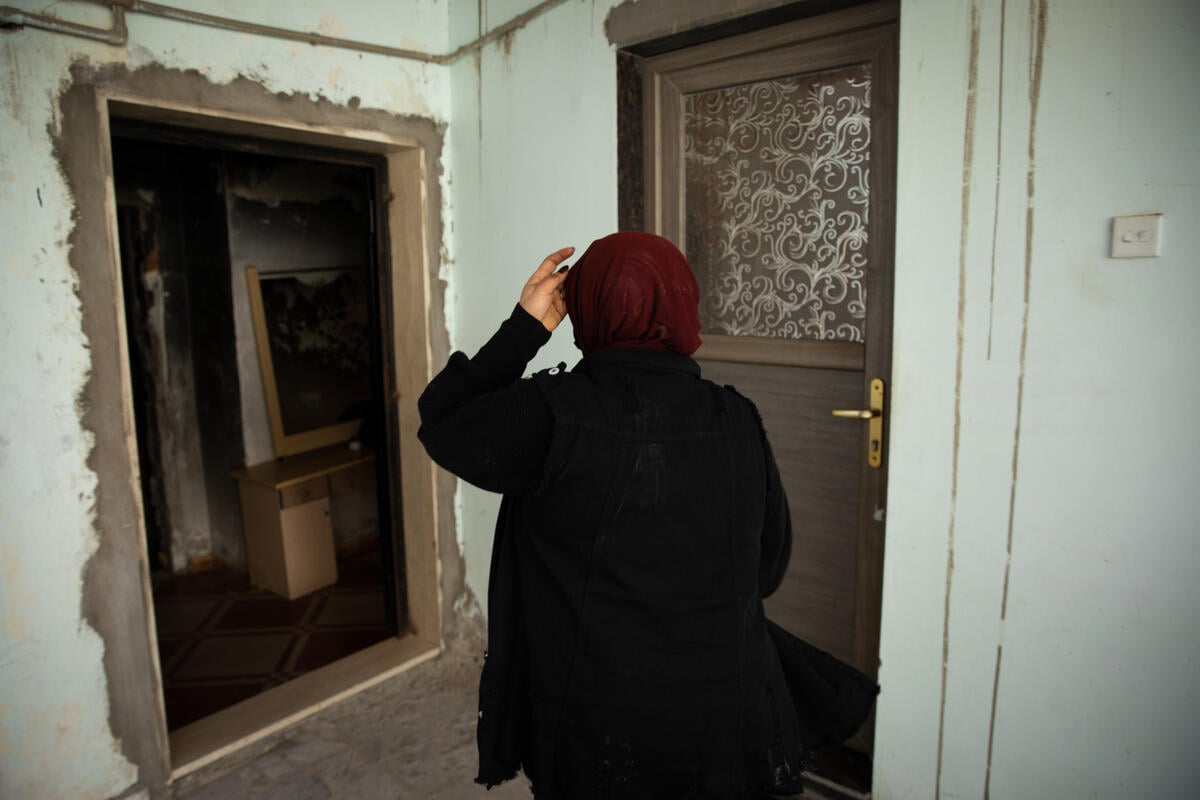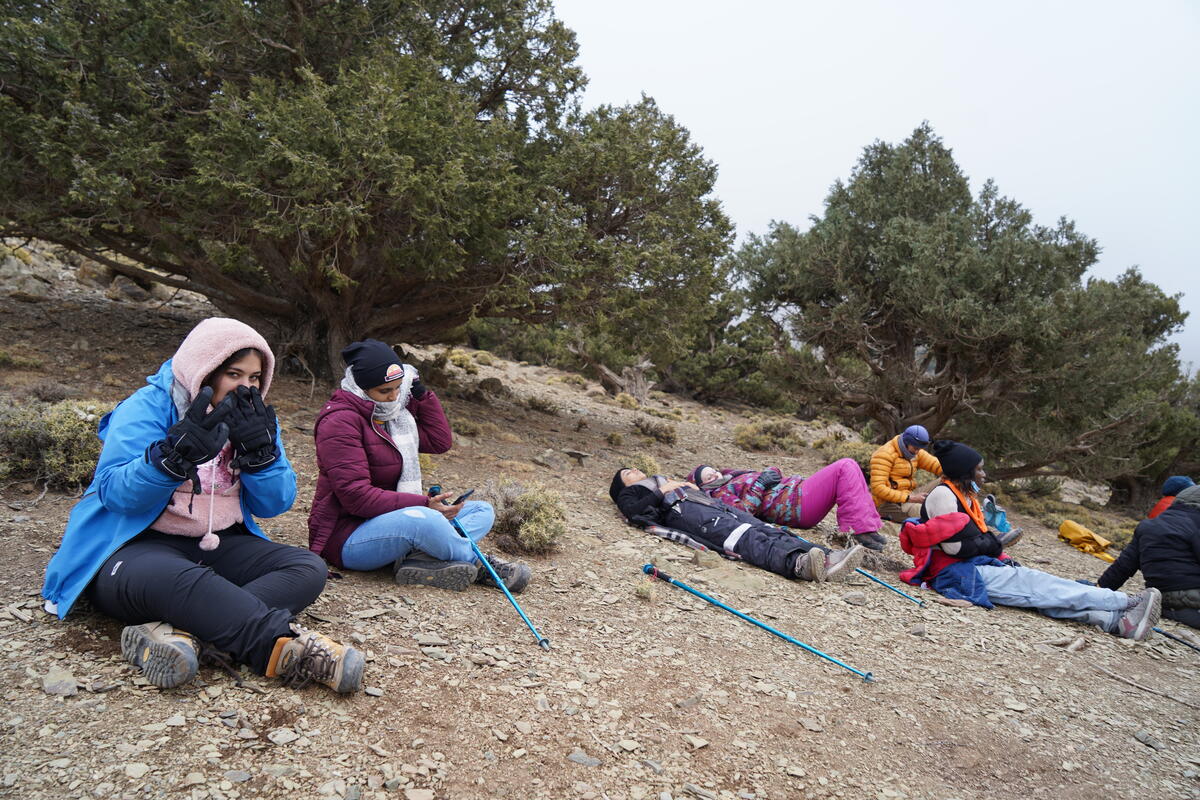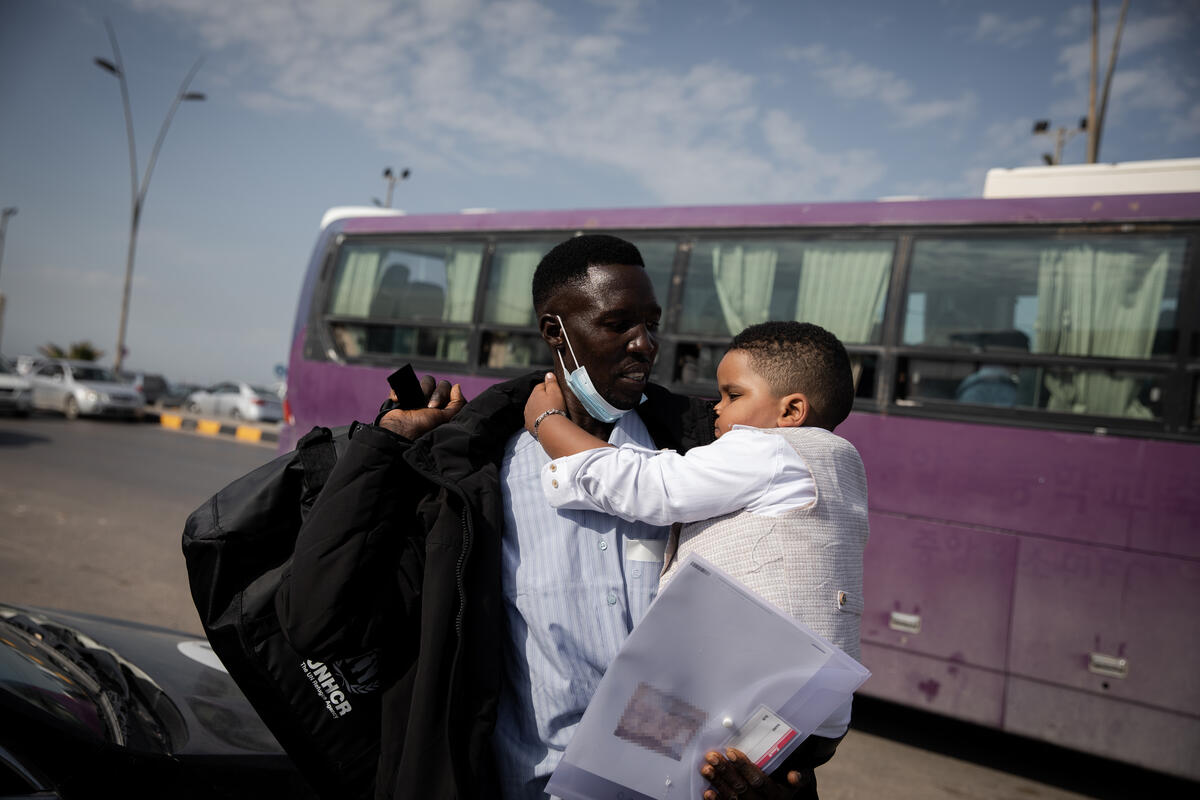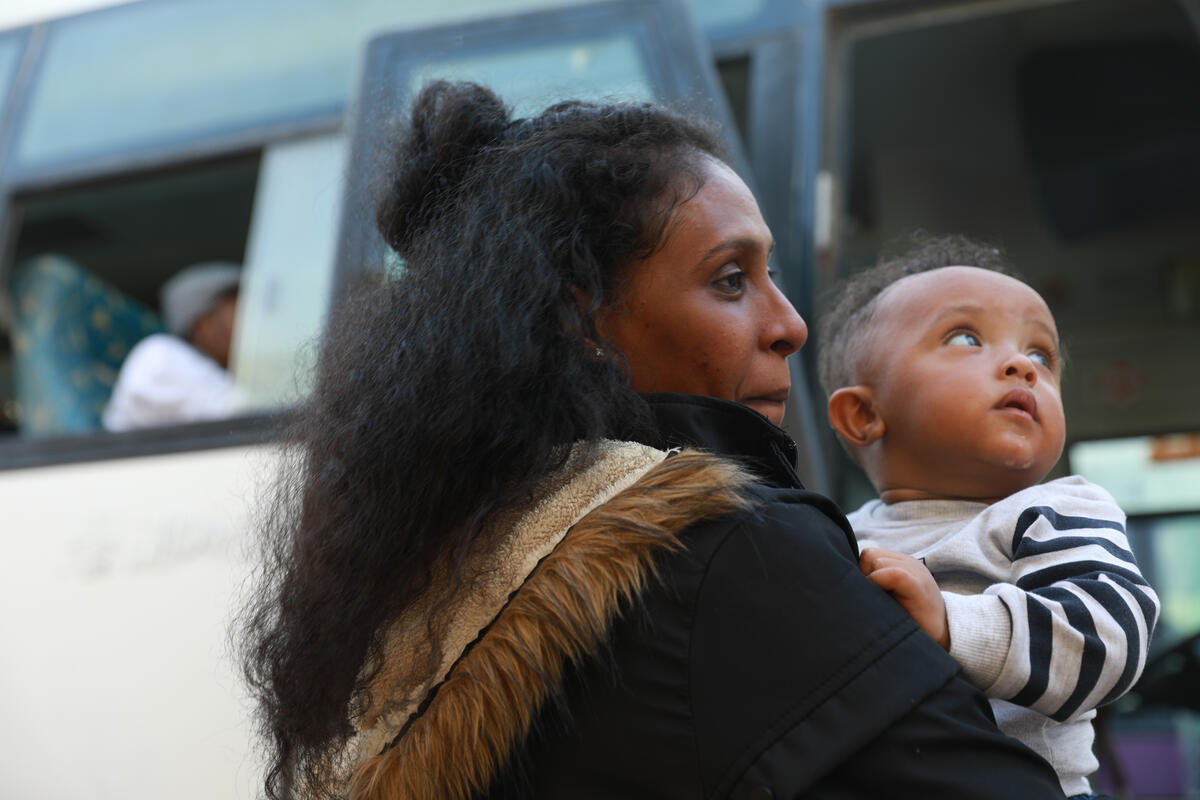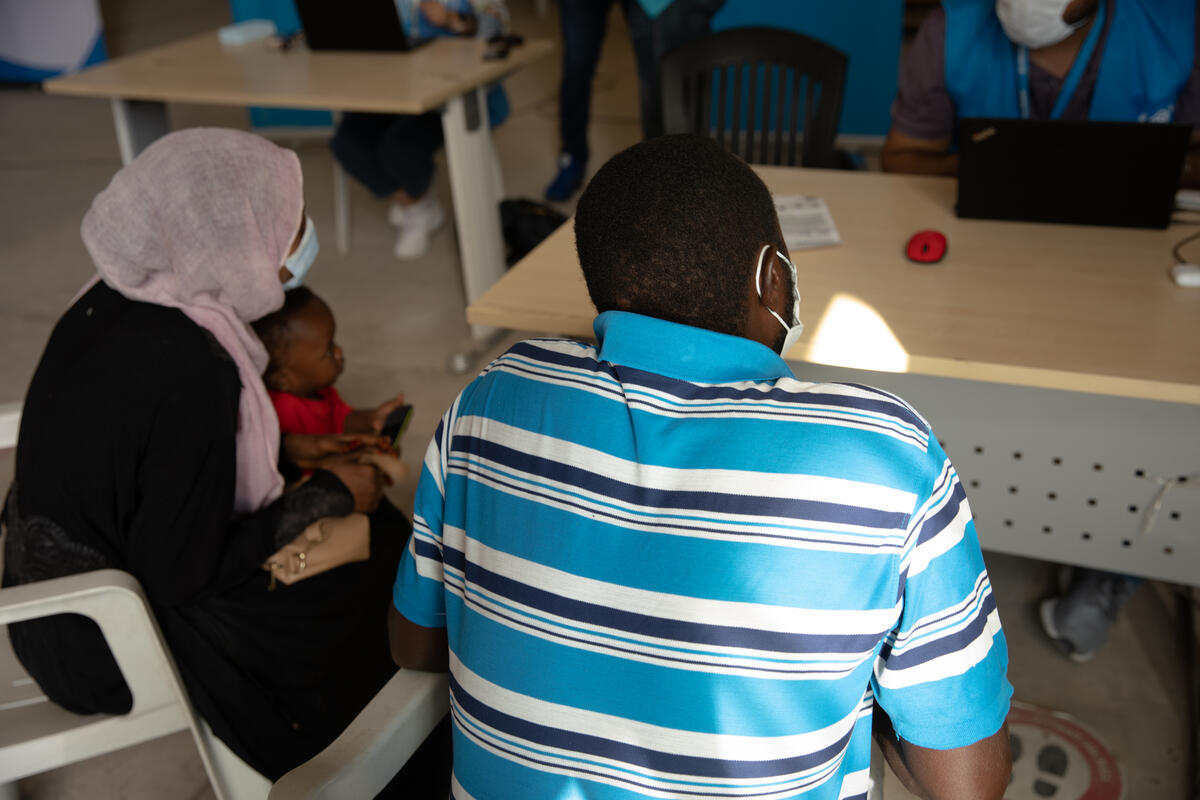More civilians flee Libya's Western Mountains, new aid reaches the east
More civilians flee Libya's Western Mountains, new aid reaches the east

GENEVA, April 26 (UNHCR) - The number of civilians fleeing to southern Tunisia to escape fighting and shelling in Libya's Western Mountains within the past month has passed the 30,000 mark.
"Most of the refugees are ethnic Berbers," UNHCR spokesman Andrej Mahecic told journalists in Geneva on Tuesday. "Many families left fearing the proximity of the clashes and indiscriminate bombardments," he added.
People crossing the border have told UNHCR staff that the towns of Nalut and Wazin in the Western Mountains region are virtually deserted. Only a few men could be seen there.
Mahecic said less than 10 per cent of the Libyan arrivals in Tunisia were staying in camps. "The vast majority of Libyan refugees are hosted by the local Tunisian communities, demonstrating once again their great generosity. However, these Tunisian hosts are under a growing strain as their resources are running out quickly," the spokesman said.
"We are working with a number of local partners in southern Tunisia in order to ease the pressure and provide more assistance and support to the host communities. We plan to further expand these activities in the coming days," he added. UNHCR also needs continuing donor support for its Libya operations.
Meanwhile, UNHCR staff left the Tunisian border for Tripoli on Sunday as part of a UN inter-agency team tasked with re-establishing an international presence in the Libyan capital and assessing humanitarian needs. The team will also discuss humanitarian access in the west of the country during talks with Libyan officials.
In the east of the country, a UNHCR-chartered cargo plane arrived on Monday in the city of Benghazi carrying relief items, including 21 hospital tents. The humanitarian aid airlift, the first to Benghazi, also brought cars and equipment for UNHCR to support the opening of an office for UN agencies in Benghazi.
The hospital tents will be donated to various charities, organizations and aid groups in Benghazi. Other aid items will be distributed through local partners to vulnerable people in and around the city, including Libyan families from the besieged cities of Ajdabiya and Misrata, as well as migrants from third countries, refugees and asylum-seekers.
Some of the families recently evacuated by boat from Misrata to the eastern port of Tobruk described a catastrophic situation. Many buildings have been destroyed in the fighting between the Libyan army and anti-government forces and some families have had to move several times. The conflict prevented many from venturing outside to get food and medicine.
"We could not leave our home for weeks, it was too dangerous to be in the streets," 38-year-old Mustapha told UNHCR staff. He left the city in western Libya with his wife and three children. "There were snipers on the roofs and continuous shelling. We did not have electricity or water for almost two months," he added.
Inas, her husband and their two young children made for the harbour during a lull in the fighting and boarded a boat to safety. She said their apartment in Misrata became like a prison, adding: "We tried to keep the children quiet as we did not want the snipers to identify where we were living. The children have gone through a lot of stress and fear, and they could also feel ours."
Many of the evacuees from Misrata are being hosted by local communities or put up for free in hotels and other buildings. Several individuals or organizations have given the arrivals food, medicine and clothing.
Alaa, a 17-year-old Libyan girl in Tobruk, said her family had gone to the harbour when they heard a boat was about to arrive. "When we saw the people getting off the boat, we could not remain passive . . . So we offered accommodation to an Iraqi couple and their two children. The woman was pregnant and in labour," the teenager said, adding that the woman had since given birth. "She is now in our home with the rest of her family."
Last week, UNHCR sent 100 tents and 1,500 blankets by ship to Misrata. These relief items are being provided by a UNHCR partner to vulnerable people awaiting evacuation to eastern Libya or to their countries of origin.
Firas Kayal in Dehiba, Tunisia and Hélène Caux in Tobruk, Libya contributed to this article.



